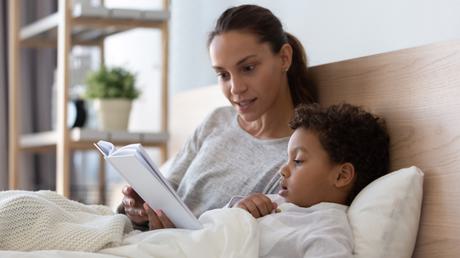Nora Knijf, Speech-Language Pathologist at Kidsability, shares her tips on how to help your little ones learn new words and skills!
We are 21st-century parents. My husband and I both work full time, with hardly any time to just sit and relax, let alone stimulate our 18-month-old. We wake up, pack our bags, shower, get dressed and rush out the door. We get home, eat dinner and then it is ready for bath and bed. With such busy, chaotic days, how can we ensure we are providing enough opportunities for our son to learn new words and skills?
One solution is to use what we are already doing every day – our daily routines! Daily routines provide predictable and familiar situations for children to learn new language and practice the language they have already acquired. Routines are also repetitive, giving ample opportunity for children to hear words over and over again in a meaningful context and generalise this language across their environments (e.g. at daycare, school, on play dates, etc).
Read More On:
More articles from KidsAbility
Here are six tips for including language in your routines:
Narrate What You are Doing
- As you are opening the tap to fill the bath – “I’m turning on the tap. Look, the water is running into the bath. It’s getting full!”
- As you are packing their bag – “What do we need for school today? We need clean diapers, put them in! We need clean clothes, put them in!”
Label, Label, Label
- Name objects, items, toys, body parts, etc. when in the midst of the routine
- During bath time: “Here’s the soap.”, “I’m washing your foot.”, “I’m washing your hand.”
Use Simple But Meaningful Language
- While getting dressed: “Put your arms in. The shirt goes over your head.”
- While putting on shoes: “Put your foot in your sock. Pull it up! Time for your shoes!”
Repeat, Repeat, Repeat
- While washing hands: “Wash, wash, wash your hands.”
- While cooking: “Cut, cut, cut the carrot.”
Let Them Fill in the Gaps
- “Brush your …..” (teeth/hair)
- “You’re eating a …..” (cookie/cracker/banana/etc.)
Choices!
- Provide choices where you can, and have your child pick by saying a word/pointing if they are unable to talk yet
- “Do you want yoghurt or an apple?”
- “Do you want the spoon or the fork?”
Here are a few examples of daily routines and words you can include in these routines:

Bath Time
- Descriptive words: hot, cold, slippery, wet, dry.
- Concepts: in, out, open, close.
- Doing words: wash, dry, pour, splash.
- Names of body parts: head, face, hand, foot, elbow, hair.
- Names of bath toys: whale, boat, starfish, fish.

Meal Time
- Descriptive words: hot, cold, sweet, salty, hard, soft.
- Concepts: in, out, open, close.
- Doing words: eat, drink, bite, pour.
- Names of food items: apple, banana, chicken, broccoli.
- Sounds: yum, crunch, squish.

Dressing/Undressing
- Descriptive words: big, small, red, yellow.
- Concepts: in, out, up, down, over.
- Names of clothing items: pants, shorts, shirt, socks, shoes.
- Names of body parts: leg, arm, head.

Bed Time
- Descriptive words: warm, cold, soft, sleepy, cozy.
- Concepts: in, out, under, over.
- Doing words: lie down, sleep, roll over, cuddle.
- Names of bedroom items: bed, blanket, pillow, teddy bear.
- Bedtime is also the perfect time to learn new words through reading a book.

Driving to Daycare/Preschool
- Descriptive words: fast, slow, big, small.
- Concepts: in, out, over, under.
- Doing words: sit, buckle-up, go, stop, drive.
- Names of items in the car: steering wheel, window wipers, tyres, door.
- Names of things you see while driving: car, truck, fire engine, ambulance, tree.
- Sounds: Vroom, honk, beep- beep, swish-swish.

About the Author
Nora is a qualified Speech-Language Therapist at KidsAbility. She completed her undergraduate training in Speech, Language and Hearing Therapy at the University of Stellenbosch (SA) in 2013. She then went on to complete her Master’s degree in Early Childhood Intervention part time at the University of Pretoria (SA) in 2018. She received several awards for outstanding academic performance throughout her training.
Nora is passionate about inclusion of all children in the education sector, in social situations with peers, in community and inevitably in society. She believes in providing family centred services. She strives to empower family members by including them into the therapy process as much as possible, allowing them to be active members in their child’s communication journey.







